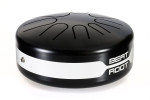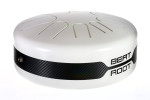
For thousands of years, music has been part of our daily lives. Music lover or not, we (re)know and appreciate its power and benefits. So much so that in 1954, the sound engineer Jacques Jost even developed a new discipline: music therapy. Using psycho-musical techniques, he improved the condition of psychiatric patients. Even today, music therapy proves to be particularly beneficial in treating certain ailments such as depression, anxiety, sleep disorders...
The benefits of Music Therapy
Music therapy is the use of sounds in the context of care. It can be applied alone, or in conjunction with other approaches (such as traditional therapies or positive psychology).
Depending on the methods used, music therapy can offer many benefits:
- Limits anxiety and the physical effects of stress. In fact, some songs are said to make people happier. This is the conclusion of Dr. Jacob Jolij's study, which listed 3 criteria that have positive effects on people: tempo, positive lyrics and the use of the major scale.
- Improves healing (also known as "sound healing").
- Can help better manage Parkinson's and Alzheimer's disease. For example, music mnemonotherapy helps Alzheimer's patients maintain their memory.
- Reduces depression and other symptoms associated with old age.
- Helps limit the symptoms of psychological disorders, including schizophrenia.
- Improves self-expression and communication.
- Is useful in the treatment of autism and other disabilities.
Music therapy adapts to the needs of the patient
Like any therapy, music therapy must be adapted to the specific needs of the patient, whether he is an adult or a child. The methods used will then be different according to the objectives pursued.
In general, here are the main objectives that music therapy can achieve:
- Communication skills: use of sounds and gestures.
- Social skills: eye contact, interactions, self-esteem, etc.
- Sensory skills: through touch and listening.
- Physical skills: fine and gross motor control.
- Cognitive skills: concentration, attention, imitation, etc.
- Emotional skills: non-verbal expression of feelings.
It is therefore up to the therapist to identify the patient's needs in order to choose the most appropriate music therapy methods. Listening to music, playing an instrument, singing, etc. Several approaches are possible and can be combined to achieve better results.
How to use a tongue drum in a music therapy context
If you are looking for an instrument suitable for music therapy, the tongue drum is the perfect choice. Intuitive, versatile and not very cumbersome, it is very easy to handle. Whether you are a relaxologist, a music therapist or an educator in a special education class, you can easily play it during your music therapy sessions.
And it is even possible to let your patients play themselves. This manipulation is interesting for developing motor skills, concentration, self-confidence and self-expression.
In practice, the tongue drum is a very popular percussion instrument in relaxation and meditation settings. The sound it makes is soft and soothing, especially if you choose the minor scale. And to accompany someone suffering from stress or depression, you can play in the major scale.
So, are you ready to experience the benefits of music therapy?
 Musical awakening: discovering music at any age
Musical awakening: discovering music at any age


